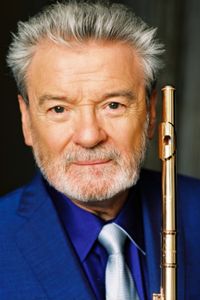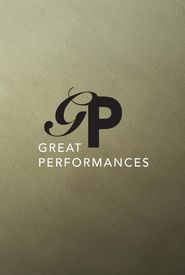Sir James Galway, a virtuosic flautist of unparalleled excellence, was born on December 8, 1939, in the vibrant city of Belfast, Ireland. Fondly referred to as "The Man with the Golden Flute" due to his exceptional mastery of the instrument, Galway has built a storied international career as a solo flautist, garnering widespread acclaim and recognition throughout his illustrious tenure.
Throughout his remarkable career, Galway has received numerous accolades, including the prestigious Brit Award for Outstanding Contribution to Music at the Classic Brit Awards in 2005.
Born in North Belfast, Galway's early life was profoundly shaped by his family's rich musical heritage, with his father, a skilled flute player in his own right, laboring at the Harland and Wolff shipyard until the conclusion of World War II. Subsequent to the war, his father transitioned to night shifts, dedicating his time to cleaning buses, while Galway's mother, a talented pianist with her own impressive musical abilities, worked tirelessly as a winder in a flax-spinning mill. As a child, Galway was raised within a deeply Presbyterian household, surrounded by a vibrant tradition of flute bands, with numerous friends and family members sharing his passion for the instrument.
At the tender and impressionable age of nine, Galway embarked on a remarkable journey, commencing his formal education in the intricacies of the flute under the watchful and expert guidance of his uncle.
As he progressed with remarkable speed and aptitude, Galway's exceptional talent for the instrument soon became apparent, culminating in a remarkable feat at the age of eleven, where he won the junior, senior, and open Belfast flute Championships in a single day, a testament to his burgeoning skill and dedication.
Initially, Galway's first instrument of choice was a traditional five-key Irish flute, which he would later replace with a more modern and versatile Boehm instrument at around the age of twelve or thirteen, marking a significant milestone in his development as a flautist.
Galway's educational journey commenced at Mountcollyer Secondary Modern School in Belfast, where he received his initial formal education. However, his academic tenure was cut short when he decided to leave school at the tender age of fourteen. Following this decision, Galway embarked on a two-year apprenticeship with a piano repairer, where he acquired valuable hands-on skills and knowledge. After completing his apprenticeship, he further honed his musical talents by pursuing formal training in flute playing at the prestigious Royal College of Music under the guidance of John Francis. Additionally, Galway also received instruction at the Guildhall School of Music under the tutelage of Geoffrey Gilbert and later at the renowned Paris Conservatoire under the mentorship of Gaston Crunelle.
During his time in the City of Light, Galway seized the opportunity to learn from the renowned French flautist Jean-Pierre Rampal, whose tutelage would ultimately prove to be a pivotal moment in his artistic development.
During the span of fifteen years, Galway's expertise as an orchestral musician underwent significant refinement, as he had the privilege of collaborating with esteemed organizations such as Covent Garden Opera, the illustrious London Symphony Orchestra, and the distinguished Royal Philharmonic Orchestra.
As the years went by, a profound sense of aspiration began to take hold within the soul of James Galway, driving him to seek a new path, one that would allow him to explore the depths of his artistic expression as a solo performer. This desire, though tantalizing, ultimately led to a difficult decision: leaving the esteemed Berlin Philharmonic, a choice that sent shockwaves throughout the music world and left his mentor, Herbert von Karajan, taken aback.
With his newfound independence, Galway dedicated himself to a solo career, one that would showcase his remarkable talent and versatility. He crafted programs that seamlessly blended traditional and contemporary music, drawing inspiration from the avant-garde and the classical. Furthermore, he took it upon himself to commission new flute works from some of the most renowned composers of his time, further solidifying his reputation as a visionary artist and a champion of innovative music.
Throughout his remarkable and illustrious career, Galway has had the distinction of releasing an impressive multitude of recordings, with a staggering cumulative total of over thirty million copies sold worldwide, a testament to his enduring appeal and widespread acclaim.
His album, "James Galway and The Chieftains in Ireland", achieved a notable milestone in 1987, reaching an impressive number 32 on the UK Albums Chart, a feat that further solidified his reputation as a masterful musician.
Today, Galway remains one of the world's most celebrated and beloved flute players, still actively performing and captivating audiences with his sublime talent, leaving an indelible mark on the world of classical music that will be cherished for generations to come.





















